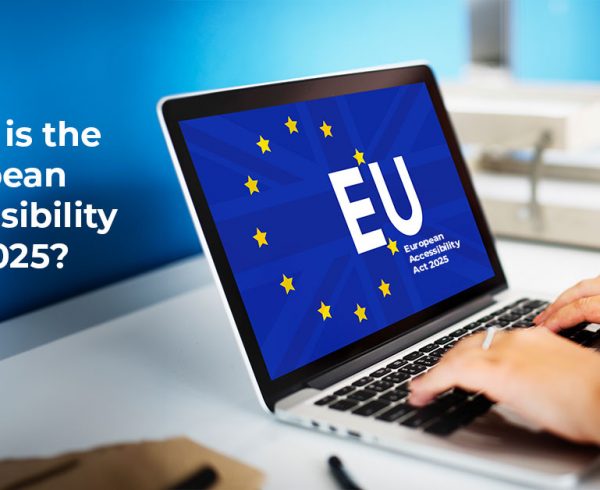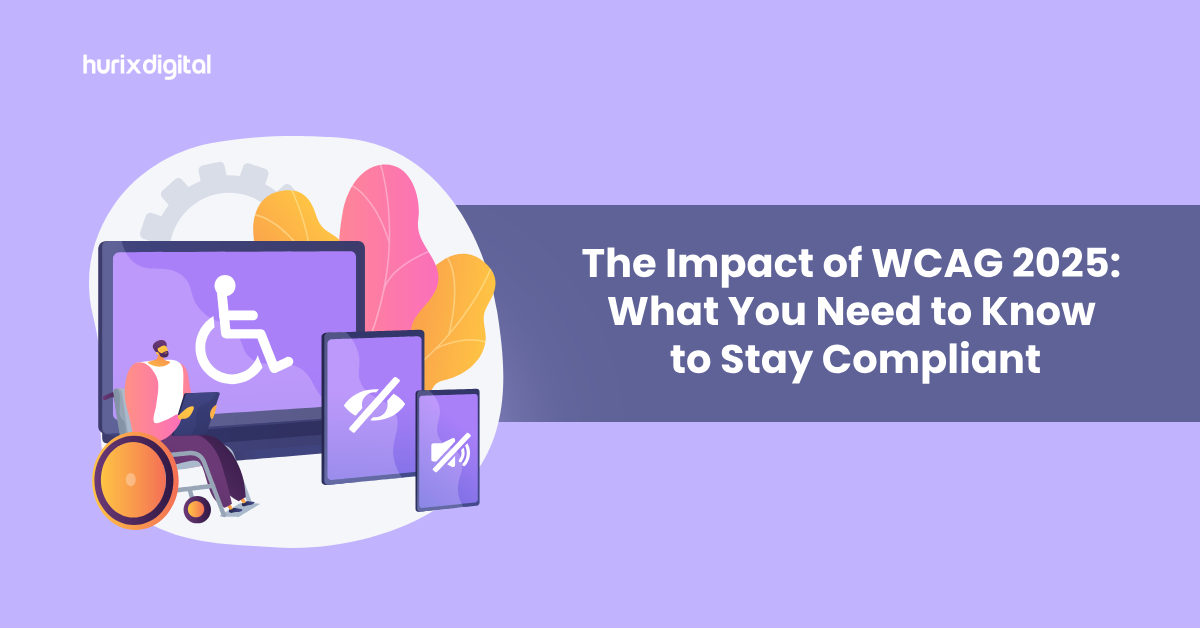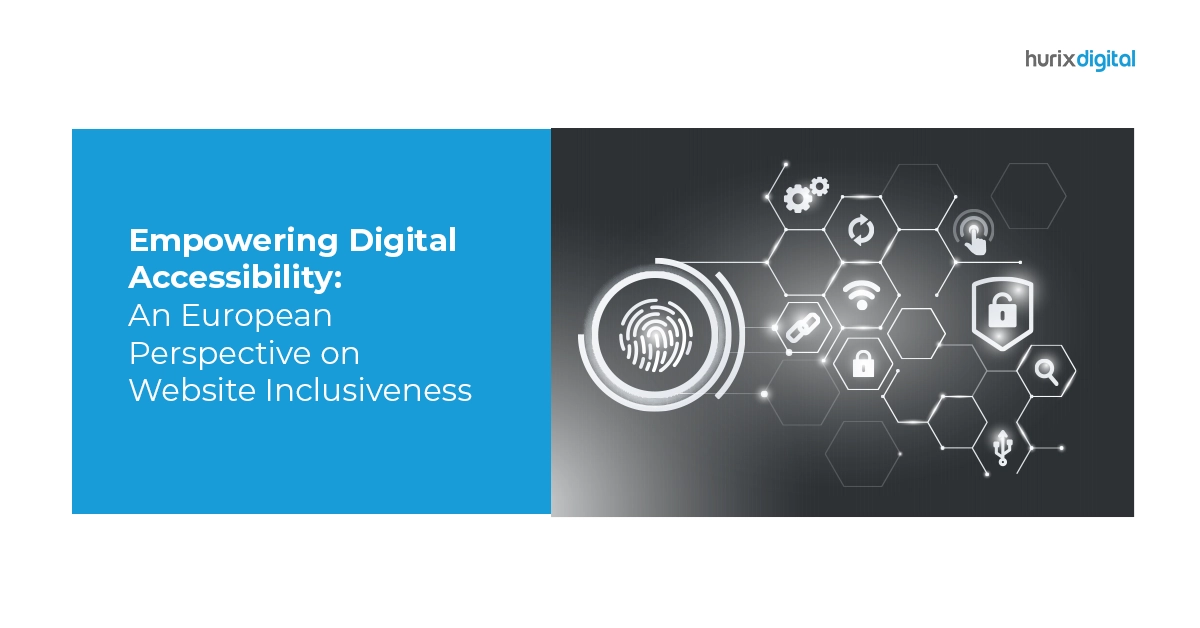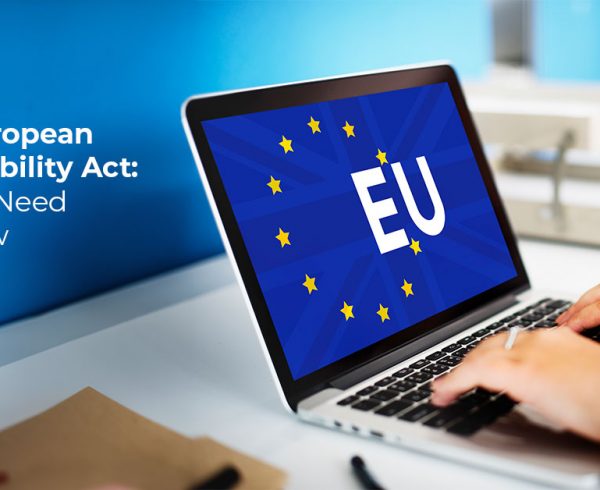Summary
This comprehensive guide has covered the top five reasons for accessibility compliance in Europe. If you want to know more about the European Accessibility Act and how it is implemented, you are at the right place.
World Health Organization statistics reveal that 16% of the world population experiences some form of disability. This hampers their access to a wide range of products and services in the physical and digital world. However, there has been growing awareness regarding the issue, and countries are making conscious efforts to develop highly inclusive and adaptable digital services.
The European Accessibility Act is one such initiative by the European Union that strives to provide equal digital services to persons with disabilities. Under the accessibility guideline, all public websites and applications are expected to strictly adhere to WCAG 2.1 Level AA guidelines.
If you want to know more about European Accessibility Laws and why they are implemented, you are at the right place. In this comprehensive guide, we have covered the five major reasons for compliance with accessibility guidelines in Europe.
Table of Contents:
- What is the European Accessibility Act?
- Top Five Reasons for Accessibility Compliance in Europe
- How to Follow Accessibility Compliance Guidelines?
- In Conclusion
What is the European Accessibility Act?
The European Accessibility Act, approved on 27 June 2019, is a comprehensive European Union directive that commands all public administration websites and applications to make all products and services available in the market accessible. The directive covered a wide range of products and services, including the following:
- Smartphones, laptops, and e-readers
- ATMs and other banking platforms
- Ticketing machines and check-in counters
- E-commerce platforms
- Telephone and Internet services
Also Read: Everything You Need to Know About the EU Web Accessibility Directive
Reasons for Accessibility Compliance in Europe
1. Inclusivity and Equal Access
Inclusivity and equal access are the primary reasons digital platforms and applications strive to comply with accessibility guidelines. Often, individuals with disabilities like visual or cognitive impairments find it difficult to access critical information and other relevant resources. This is a major hassle in their everyday lives and hampers their employment and learning.
Consequently, website accessibility ensures that all individuals, with or without disabilities, can equally participate in all kinds of online activities and leverage their full potential. The ensured participation goes a long way in providing every individual with a dignified and independent living environment. Additionally, website accessibility guidelines are also helpful for people in their old age or those facing circumstantial injury-induced disability.
2. Legal Requirements
Website and digital platforms that do not adhere to accessibility guidelines will be levied with heavy penalties and strict legal action. The European Accessibility Act 2025 has presented an important deadline for all countries under the European Union that have still not implemented the accessibility guidelines.
By 28 June 2025, they must ensure that all administrative digital provisions adhere to strict and robust inclusivity guidelines. Platforms who miss this deadline will face severe legal consequences. Customers and users can also file a complaint against them with the national court and other relevant authorities.
3. Market Expansion
Once websites have incorporated accessibility guidelines, they will automatically be able to expand their reach and market by tapping into a previously unexplored customer base. Additionally, these positive steps towards inclusivity will also provide the platform a competitive edge.
With the advancement in digit technology, the marketplace has become increasingly crowded and competitive. By offering accessible products and services, customers will begin to prioritize the platform, thus demonstrating their loyal commitment.
This gradual market expansion can eventually increase a company’s global reach as well. With a well-established customer base, it becomes easy for organizations to enter the international market and diversify.
4. Branding and Reputation
Another important benefit of adhering to accessibility standards is a positive reputation and inclusive branding. By enabling all customers to have a great user experience, positive publicity will automatically follow via social media platforms, word-of-mouth, online testimonials, and more. A positive brand image and reputation go a long way in attracting loyal customers.
Apart from customers, a positive reputation regarding accessibility and inclusiveness will also attract government contracts and tenders. Governments are constantly looking for businesses that promise equal rights and opportunities to all citizens of the country. To leverage these stakeholder relationships, conduct a digital accessibility audit to ensure your services are up to the accessibility mark.
5. Boosting SEO
Implementing accessibility standards automatically improves content structure and quality. Factors like clear and easy-to-understand content, proper use of headings & sub-headings, keyword usage, etc., lead to positive search engine optimization. There are numerous other overlapping features between website accessibility and search engine optimization.
Mentioned here are some examples:
- Faster loading time
- User-friendly design interface and layout
- Mobile friendly design
- Alternative text for audio and videos
- Broader audience reach
- Compliance with technical standards like HTML AND CSSS3
Also Read: All You Need to Know to Ensure Web Accessibility
How to Follow Accessibility Compliance Guidelines?
Here are some steps you can take to ensure your website is adhering to accessibility regulations:
- Research and familiarize yourself with WCAG guidelines and its various conformity levels.
- Participate in a11y accessibility community-driven platform and its accessibility implementation strategies.
- Conduct regular accessibility audits to ensure accessibility compliance.
- Stay updated with accessibility trends, applications, and testing tools to make informed decisions.
- Track user feedback and reviews and remember to implement the suggestions for improvement.
In Conclusion
As technology and digital tools continue to develop rapidly, it becomes important to foster digital inclusivity via accessible platforms. By embracing inclusivity guidelines, each user can unlock a world of opportunities. Consequently, all countries are implementing inclusive digital strategies to ensure an equitable and resourceful society.
Now that you have found your answer to why digital accessibility is important and want to implement accessibility guidelines for your digital platform, we have got you covered.
Visit us at Hurix Digital and benefit from our vast list of disability laws and accessibility services. We also offer other digital services like robotic process automation, customer software development, e-commerce solutions, and more.
Reach out to our expert team now and get started.










